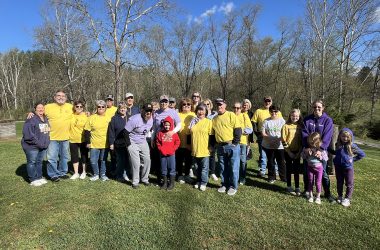John 16:19-33
The gospel according to John, unlike the gospels of Matthew, Mark and Luke, includes a record of the words Jesus spoke to His disciples as they walked from the upper room at the last supper to the garden of Gethsemane where He would be betrayed. In the words before us, Jesus revealed to the disciples the emotions which they would shortly experience. In verse 33, the Lord explained why He had told them these things. He said, “I have spoken unto you, that in me ye might have peace.” The Holy Spirit moved John to record Jesus’ words such that all who believe might also have peace in troubling times.
In verse 19, Jesus revealed to His disciples that He knew their very thoughts. He knew that they were totally puzzled by that which He said in verse 17. Jesus said, “A little while, and ye shall not see me: and again, a little while, and ye shall see me.” Jesus had previously told them that which was about to transpire — that He would be betrayed, that He would go to the Father, and that He would send the Comforter to them. The words of verse 17 are different; they tell of that which the disciples were about to experience. Jesus knew the anguish which they should soon experience.
Jesus knew the turmoil of the near future and the joy which would follow. Jesus used proverbs to tell them these things (v. 25). Their sorrow would turn to joy in the manner in which the pain of childbirth is followed by overwhelming joy of precious new life. Jesus explained that they would experience joy which no man could take from them when they would see Him again (v. 22).
In verses 23 and 24, Jesus makes it known that the joy which they would experience shall not be full until after “Whatsoever ye shall ask the Father in my name.” They would experience the joy of childbirth upon beholding Him but the fullness of their joy awaited their asking the Father in His name and receiving that which they asked.
The promise of receiving that which is asked in Jesus’ name (v. 23) cannot be separated from that which Jesus spoke in chapter 15, verse 7. Asking in Jesus’ name requires that one abide in Jesus. Words mouthed “in Jesus’ name” are not magically fulfilled. Fulfillment requires all that is asked to be an expression of the Son; it is the will of the Father.
John 1:12 states, “But as many as received him, to them gave he power to become the sons of God, even to them that believe on his name.” The Son gives power to be as He is to all who abide in Him.
The linkage between asking in His name and enjoying a special relationship with the Father is found in verses 26 and 27. The future time in which Jesus will no longer speak in proverbs (the time in which the disciple realize the fullness of their joy) is a time in which intercession is not necessary because the Father loves them as they have loved the Son believing that Jesus came out from God. The disciples, in asking in Jesus’ name, shall enjoy a relationship of love. That relationship of love would not be realized until Jesus had left this world to be with the Father (v. 28).
The disciples thought they understood. They said, “Lo, now speakest thou plainly, and speakest no proverb” (v. 29). The disciples most certainly understood that Jesus knew all things and believed that He came forth from God but the time at which Jesus should plainly show them the Father had not come (see v. 25).
Jesus did not plainly reveal the love of the Father to them until He gave Himself upon the cross of Calvary. The love of the Father is revealed by the actions of the Son. Jesus, indeed, spoke plainly but the disciples would not fully understand until He should arise victorious from the grave and stand before them. One cannot know the Father except He be revealed by the Son.
Jesus knew that their joy to come must wait until they would see Him after “a little while” and that their joy would not be made full until they should know the Father who so loved the world that He gave His only begotten Son that they not perish but have everlasting life. Jesus asked, “do ye now believe?” The disciples would not truly believe until they beheld Jesus after “a little while.” They would not truly believe until all that Jesus said should happened came to pass. They would scatter, leaving Jesus alone to die upon the cross.
Jesus said they would leave Him but that He would not be alone “because the Father is with me” (v. 32). God the Father and God the Son are one. Jesus alone died a physical life upon the cross. The suffering the only begotten endured, the Father knew.
Jesus spoke these things such that we might have peace. We plainly hear that which Jesus spoke if we have peace. All who know that He has overcome the world, all who know that He has done that which we cannot do, have peace and joy unspeakable. May all hear and find peace.



